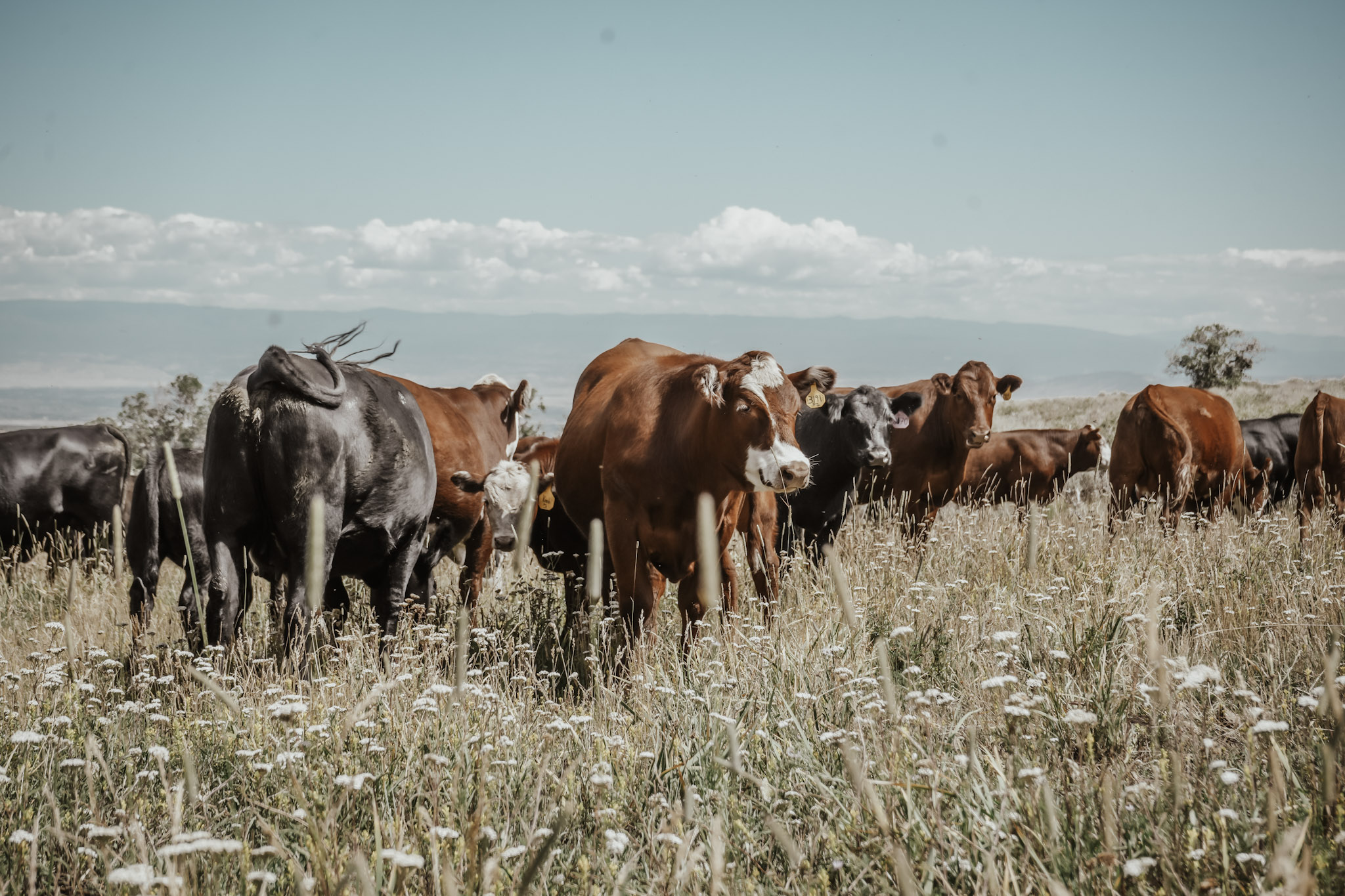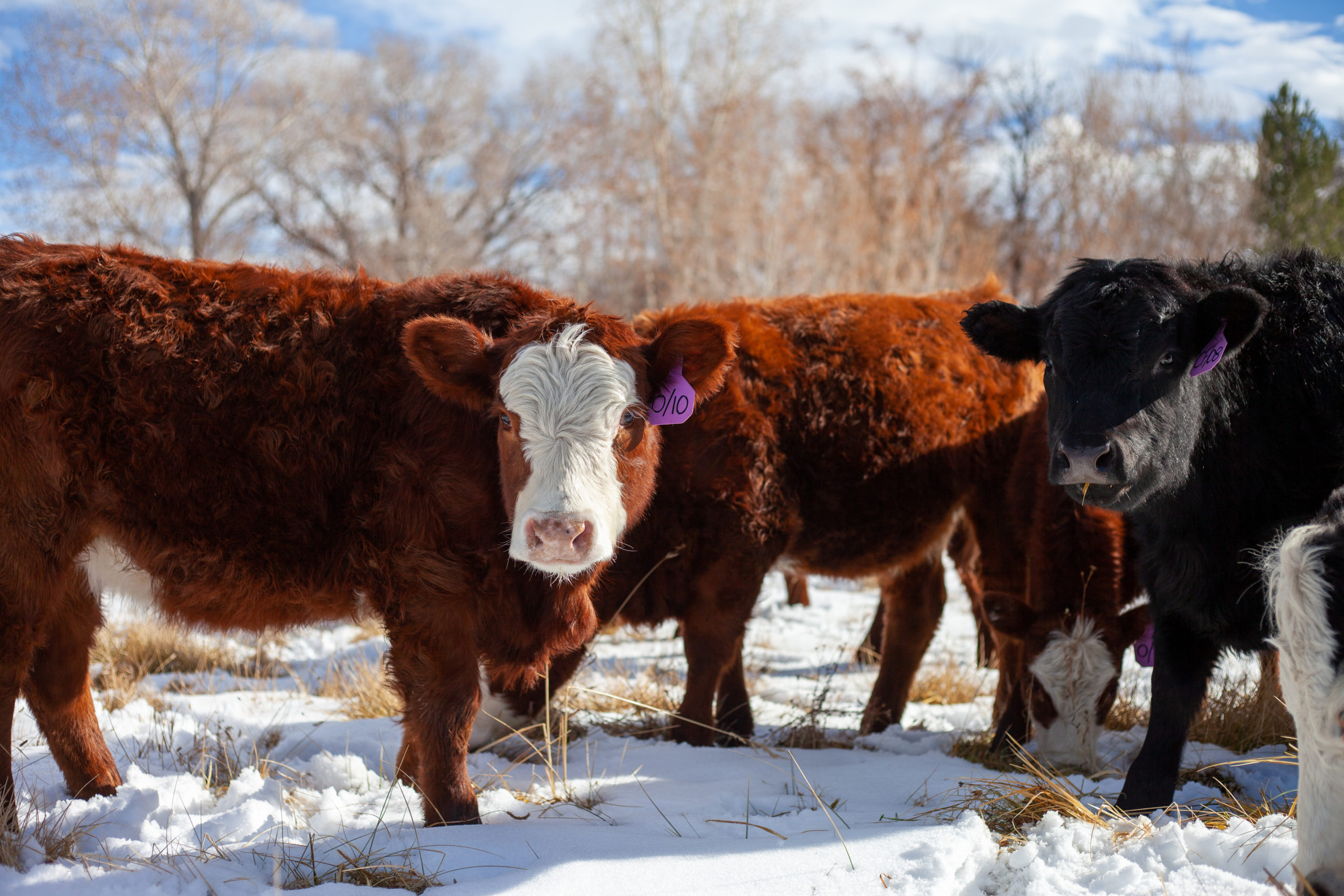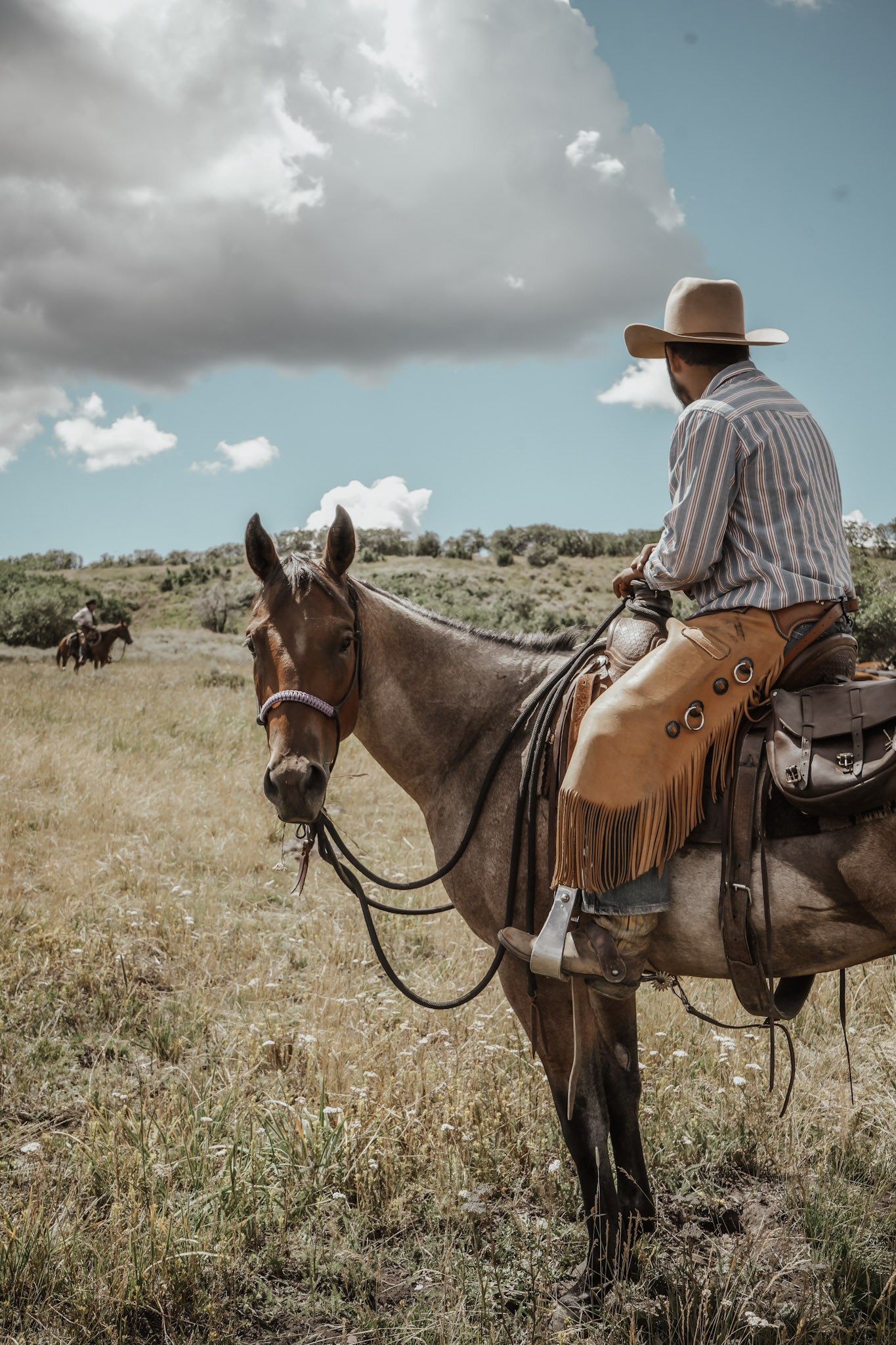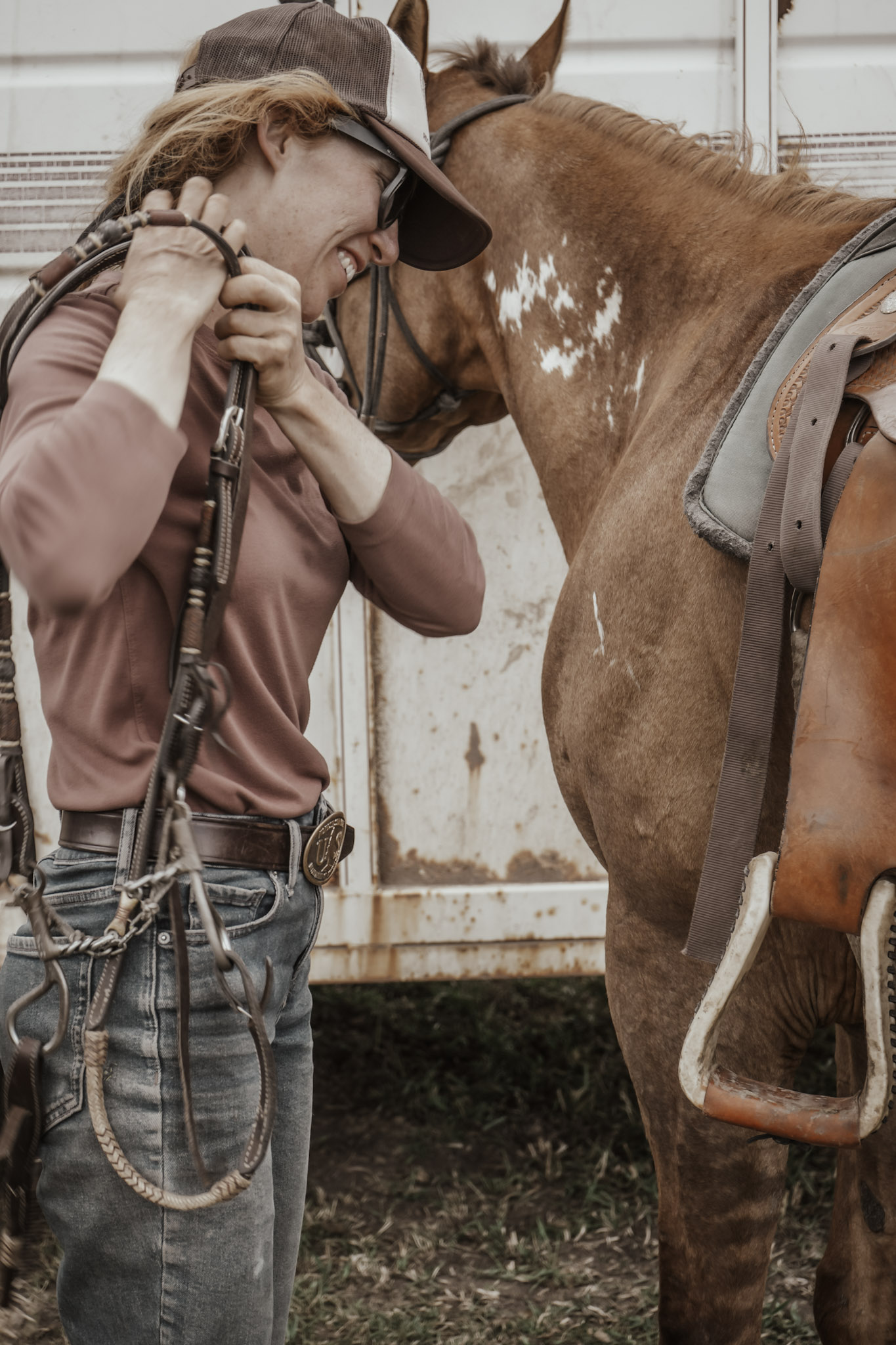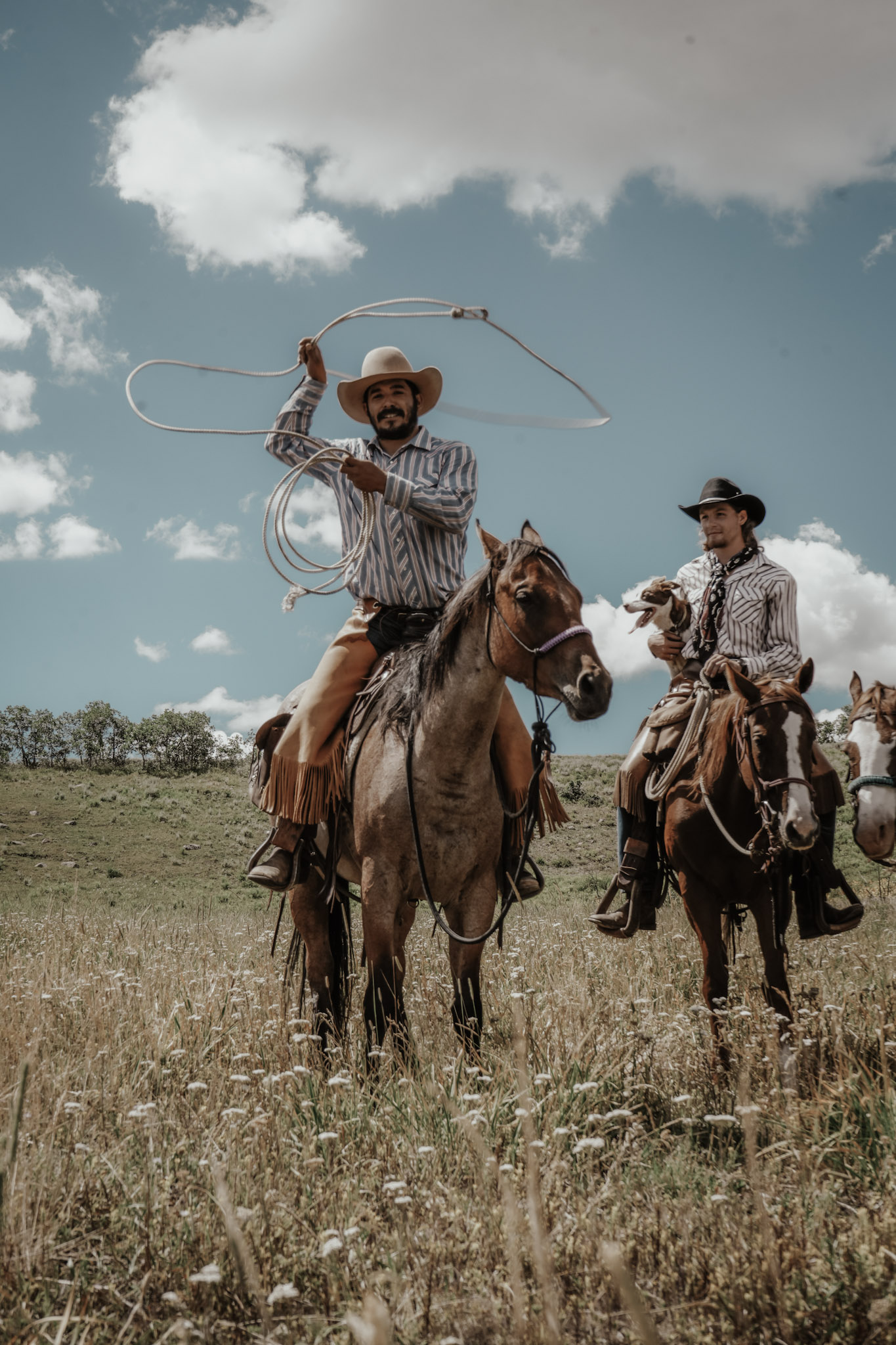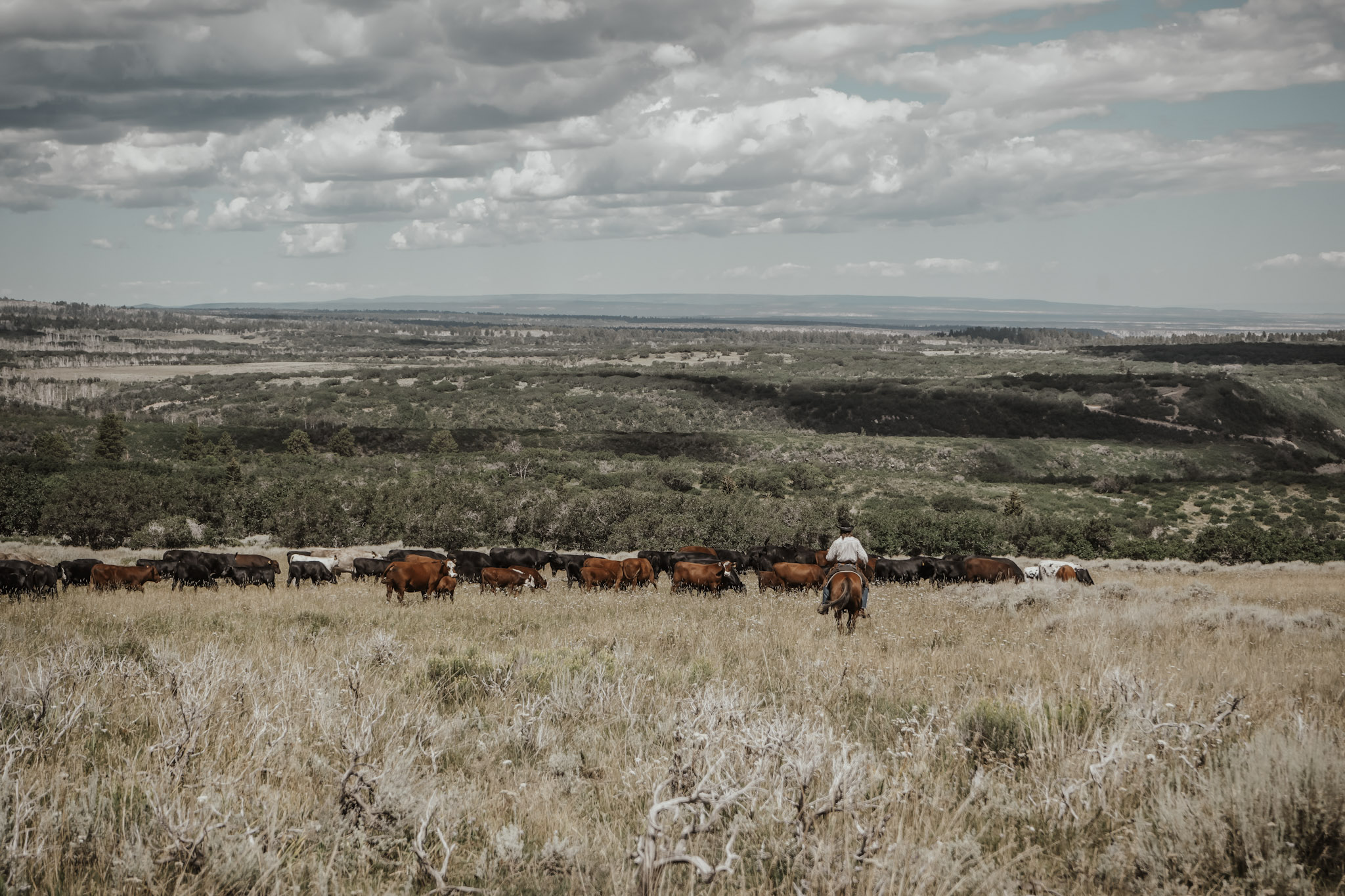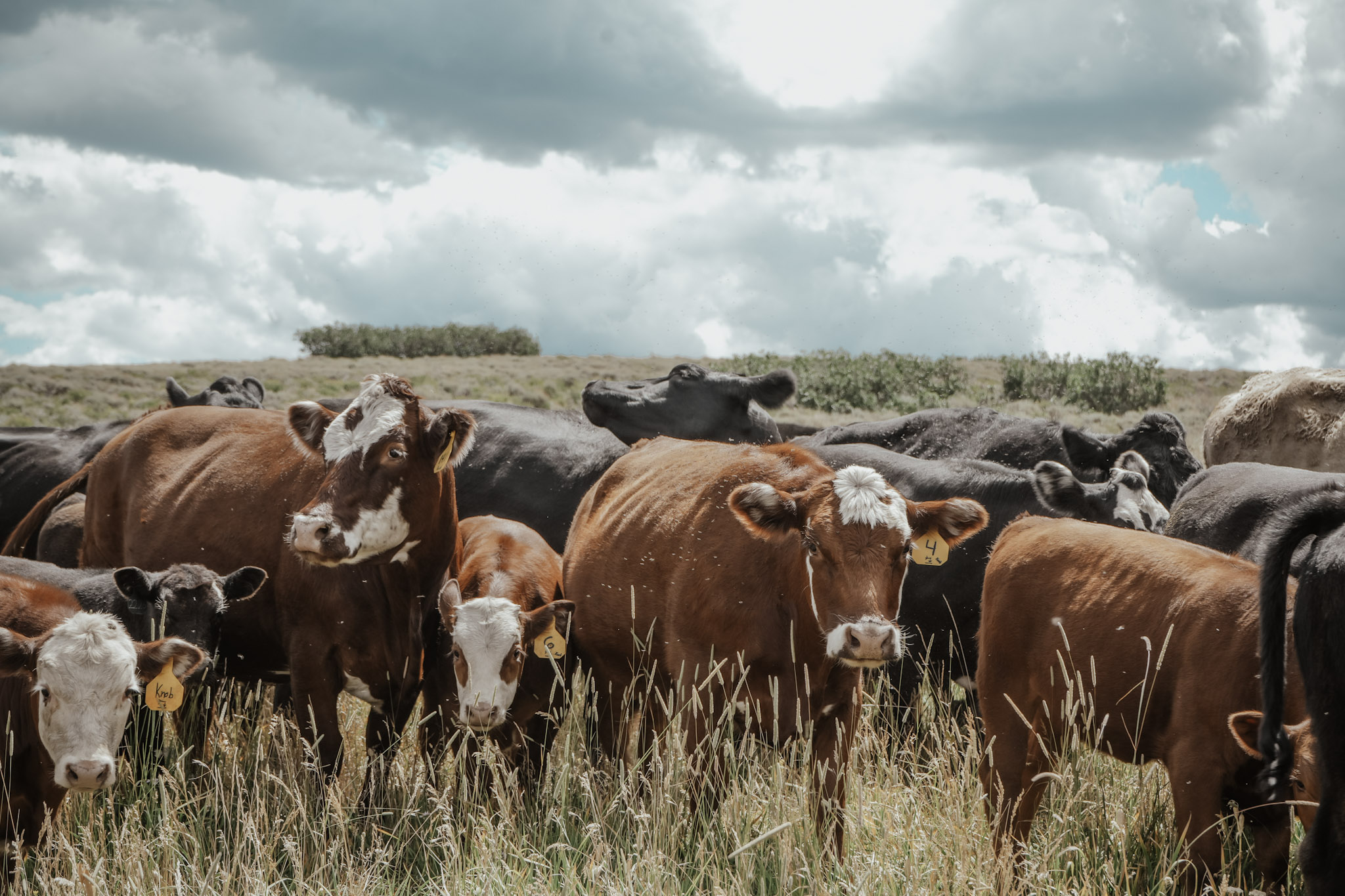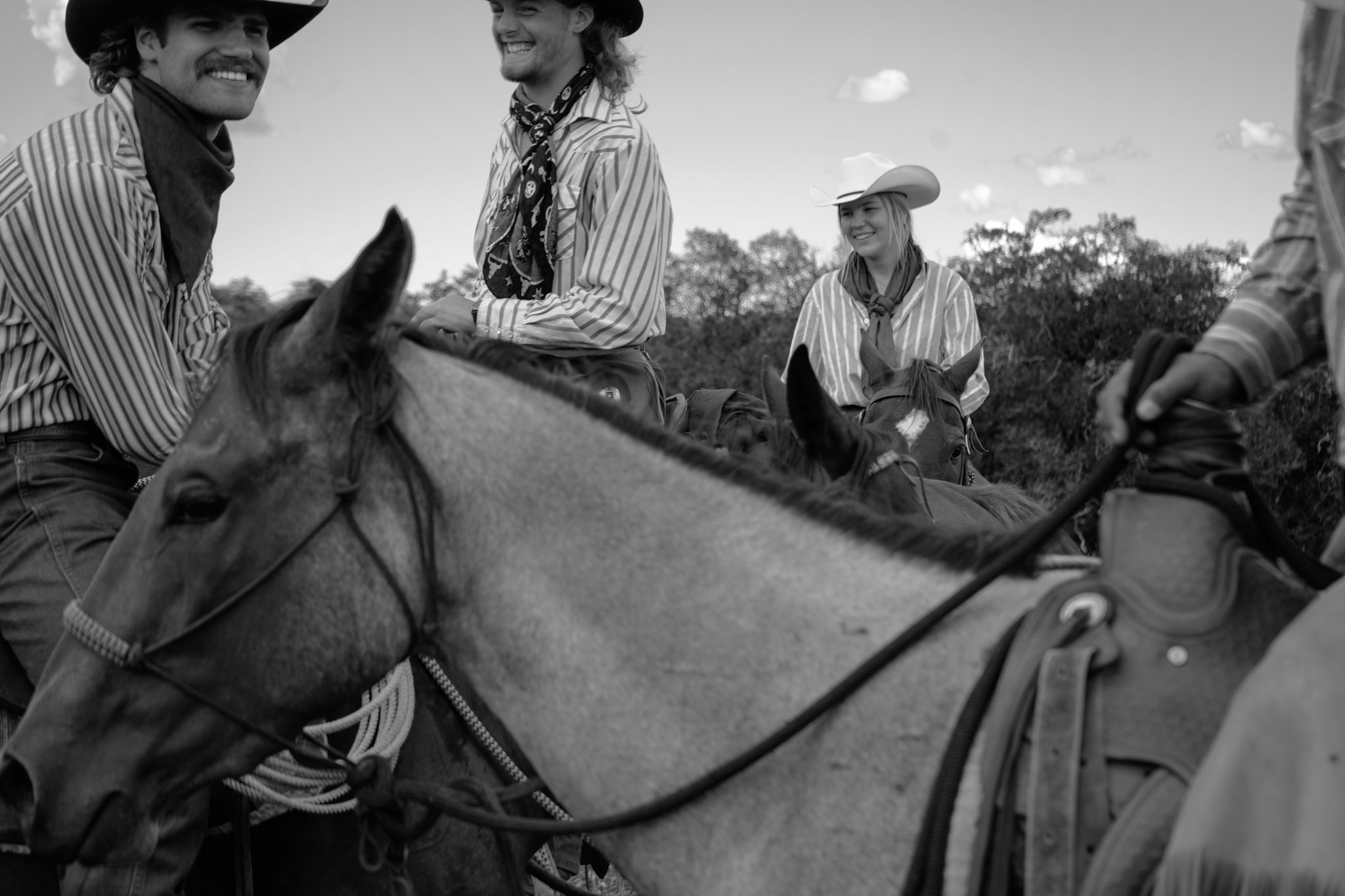Uncompahgre Farms was founded in 2019 with three big goals in mind:
- Improve the land through regenerative agricultural principles,
- Raise the animals with respect and gratitude, and
- Reconnect folks to their food and each other.
In an age ensnared by deceptive flashes of instant gratification and quick fixes, we deliberately asked ourselves- what is essential? We need food, water, shelter, purpose, and community, and we found solid ground for ourselves- well, in the soil. Rejecting the constant growth mindset and relearning our place in nature’s cyclicity, we have found deep joy in nurturing the cosmos beneath our feet, and in turn helping the animals, the land, and our community thrive. While we don’t own any land, we are lucky enough to lease fields from supportive community members, and enjoy making friends as we provide grass-finished beef and lamb at our local farmers’ markets. Uncompahgre Farms is an intentionally modest operation, and while we know we can’t save the world on our own, we’re happy to be doing our part, one cow, one neighbor, one field at a time! Thank you for joining us on the journey!

